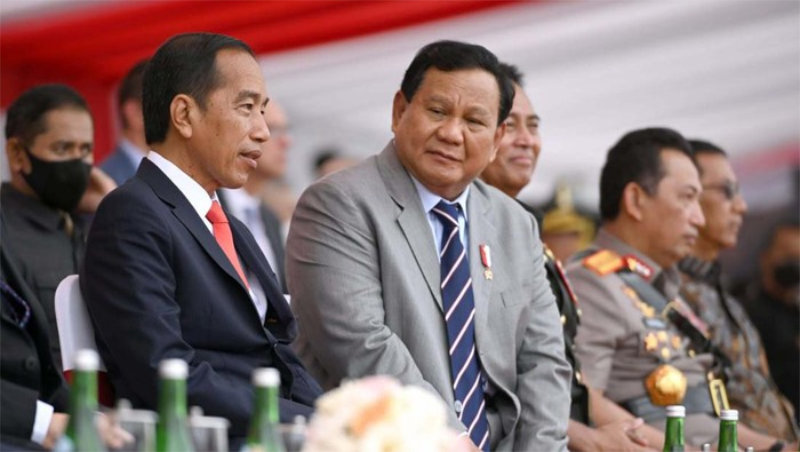He came, he went and in between he did what exactly? Duncan Graham unpacks the reality of last week’s visit to Australia by the Indonesian president Joko ‘Jokowi’ Widodo.
Before heading to Sydney for a billed three-day visit — in reality, just one full day — President Joko ‘Jokowi’ Widodo’s media team gave a select few Australian journalists the inside running on what the trip was going to yield: an EV batteries mineral deal yielding billions in investments, plus extracting major concessions on discriminatory travel rules.
Trouble is, neither happened to any significant degree.
Deflating expectations
Prior to the visit, former ambassador John McCarthy deflated some of the hype: ‘Truth be told, our relationship with Indonesia has become a mite boring. Never mind. In this business boring is good.’
But, for added spice, he noted that Indonesia will never be a ‘quasi-ally’of Australia.
‘We need its heft (not ‘fence-sitting neutrality’) …to work with its fellow Southeast Asians to bring China and America back from the brink. This will involve more than engagement. It will involve activism. We need it as a strong pole in a multi-polar region.’
If such sturdy diplomacy was on the Sydney agenda, it never surfaced in public.
Decoding the statements
Instead, the leaders’ business was so speedily dispatched Jokowi had time for more EV battery talk with Peter Dutton, a wet harbour police boat cruise and jolly pix with endangered Sumatran Tigers, ironically safer in Taronga Zoo than their natural environment, given their Balinese and Javanese descendants have already been shot into history. Literally.
As a brief break from Indonesia politics, not bad. As a strategy spruik, not good, because the hidden message was to appease Indonesia’s radical nationalists ready to inflame real or imagined Western plots in the upcoming election campaign as they’ve done before.
Hence this hose-down by Anthony Albanese: ‘We recognise the importance of Indonesia’s territorial integrity and your sovereignty as a nation. And we respect that, and we work with you on a range of issues covering the difficult geopolitical circumstances of our time.’
Decoded this means a couple of things: first we plan to tell you more sometime about AUKUS nuclear-powered subs in your waters. Second, we won’t back Papuan independence fighters like we supported you guys during the 1945-49 war against the Dutch.
Having arrived on possibly his last visit as president (he steps down in October 2024 after an election in February) Jokowi stayed media shy, doubtless fearing questions about human rights abuses, persecution of gays and a retreating democracy. Or maybe the World Trade Organisation.
The joint leaders’ list of must-dos ‘reaffirmed the importance of the multilateral trading system, with the WTO at its core … focused on improving WTO functions and having a fully functioning dispute settlement mechanism by 2024’.
A different salute on world trade
This is gold-standard hypocrisy because Indonesia is giving two fingers to the WTO by stopping many critical mineral exports.
Late last year the global authority ruled the bans violated its tariffs and trade agreement. But Indonesia refused to restart its port bulk loaders, arguing it needs the ores to stay in the archipelago and be processed.
The Asia Times reported Economic Coordinating Minister Airlangga Hartarto saying developed countries controlling other nations’ exports was a ‘form of modern-day colonialism that will inhibit Indonesia’s economic growth and development.’
‘Down-stream processing’ has been an unhatched egg in Australia for so long it has addled as we continue to ship cheap iron ore to China and import its costly steel products. Jakarta has watched our inability to change this system so is taking action by building Chinese-funded smelters.
It has more nickel than any other country and more than it can currently use. The European Union wants raw ore for stainless steel and EV batteries, so complained to the WTO.
The EU won but Indonesia’s response was: Go jump, or to put it politely, we’ll appeal and keep doing things our way. According to Reuters, Jokowi said: ‘We want to be a developed country, we want to create jobs. If we are scared of being sued, and we step back, we will not be a developed country.’
That’s a road Canberra won’t explore because Australia likes to think of itself as a stickler for international rules and use the WTO to clobber countries like China that has banned our wines and barley ostensibly for political reasons.
A happy anniversary, of sorts
The Albanese-Jokowi meeting also celebrated the third anniversary of the Indonesia -Australia Comprehensive Economic Partnership Agreement. Proof that the free trade deal has yet to live up to expectations comes with the foreign ministers being told to ‘renew the plan of action’.
The IA-CEPA includes quotas on work and holiday visas, eventually allowing entry for 5,000 Indonesians a year. This unused clause waits for another meeting – whoever that may be from Indonesia – and preferably with more time.
As he wanted, Jokowi’s plans to sell EVs to the neighbours and get WA lithium topped the talking points. While a presidential tick helps, in the end, any deals will be done by investors who’ll decide whether trade makes business sense.
US cable news network CNBC reported an ‘analyst’ claiming there’d been a signed ‘win-win’ deal on EV battery minerals between Canberra and Jakarta but there were no names or details. This story looks sus.
Australian bankers reckon the risks too great to invest in Jokowi’s Nusantara new city signature project in East Kalimantan which is already looking parched for want of dollars. Who’ll put money into a show where the state is corrupt, returns hard to detect, and worries whether the cheerleader’s successor will be waving Widodo’s flags
AFR finds something others did not
Having given much space to pre-visit predictions, the AFR discovered a ‘strongly-worded communique’ driven by ‘international tough-mindedness’. This language was invisible to other readers.
The 40-point document was thick with soft synonyms suggesting the leaders’ teams ‘welcomed, recognised’ and ‘underlined’ ideas, but blandishments are decorations, not enforceable treaties. Readers questioning this analysis can check the 2,400-word statement here.
A slight move on visas
The leaders agreed on extended visas for Indonesian business folk, a long-standing concern of Jakarta, and the launch of more Australian university branches in Indonesia. There’s just one post-graduate campus run by Monash in Jakarta and the proposed new unis are conditional on Nusantara being built.
There are no fine details yet about the visa change. It’s modelled on the frequent-traveller deal for Chinese which costs $1,395 for a decade. It’s not for holidaymakers.
As Ross Taylor, former president of the Perth-based Indonesia Institute and a persistent advocate for fairer and cheaper entry permits for Indonesians, claimed there’s a ‘huge market’ wanting to enjoy the Wide Brown but finding the process discriminatory and onerous:
‘The visa reforms do nothing to address the red tape and expenses that act as a massive disincentive… The big loser is Australia. Indonesians can go visa-free to 70 countries, including Japan and India.’
The bottom line
Why not treat Indonesians like we handle Malaysians and Singaporeans who get cheap online visas? Because – as Lowy research shows – we don’t trust ‘em, and it’ll take real tiger talk to start a change. John McCarthy should be at the next leaders’ love-in.
The race is on – the line-up to replace Joko Widodo as Indonesia’s next president is revealed
Duncan Graham has a Walkley Award, two Human Rights Commission awards and other prizes for his radio, TV and print journalism in Australia. He now lives in Indonesia.

